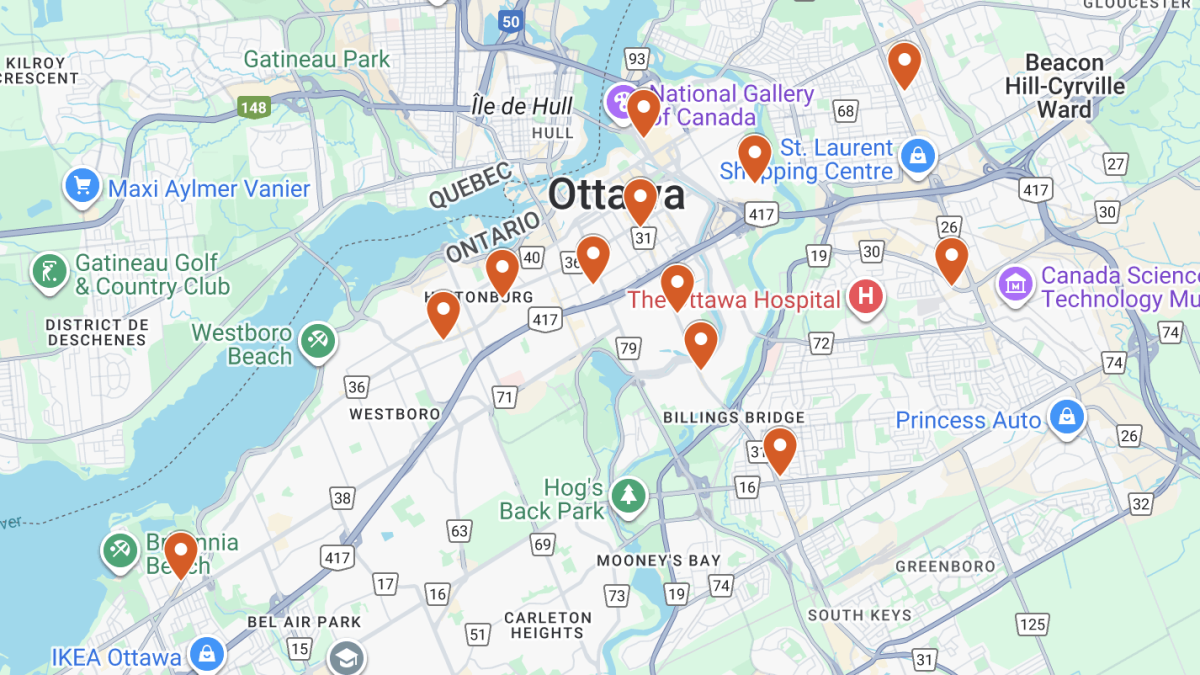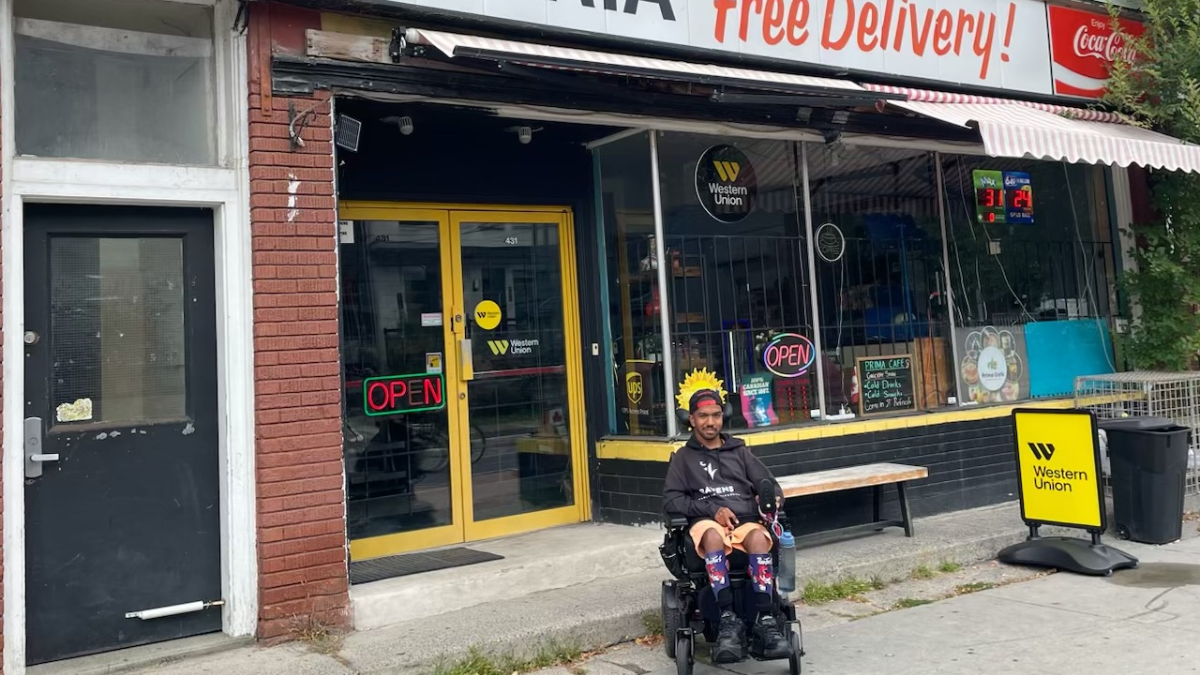When Maheeshan Sivanesan arrived at a convenience store on Sunnyside Avenue recently, he realized one step was all it took to shut him out.
Sivanesan relies on a motorized wheelchair to get around Ottawa and often runs into barriers. He said many businesses, particularly in the Glebe, are not accessible for people with physical disabilities.
“Bank Street overall, the majority of businesses are inaccessible,” said Sivanesan. “So many places have one step and I can’t enter.”
Volunteer-led organization StopGap Ottawa is trying to help people such as Sivanesan gain access to more stores, by selling portable wooden ramps to businesses that have steps at the entrance. The not-profit began operations in the city in 2015. It is a part of the larger StopGap Foundation.
This month, the organization installed several ramps in the Glebe to help make the area more accessible.
Not every business wants one. “A lot of businesses are resistant to getting a ramp,” said Kenzie McCurdy, a volunteer with StopGap Ottawa. “It’s really discouraging that something that is so easy is so resisted by so many people.” The resistance, McCurdy said, stems from fears of being ticketed by bylaw officers for blocking sidewalks or the belief that a ramp would not improve sales.
Knifewear Ottawa staffer Luca De Marinis has a StopGap Ottawa ramp in front of his store and said it has helped make his business more accessible.
“Why would we be better off excluding anyone?” De Marinis said. “If we can do a few simple things to make sure that everyone can access our services the way anyone else can, then the more folks in the store, the better.”
Ramps from StopGap Ottawa cost about $150 and are made by a volunteer. The organization has a partnership with Home Depot on Baseline Road to paint and finish the ramps. A volunteer then delivers the ramps to the businesses that order them.
“It’s nice and easy to use,” De Marinis said. “It’s not light, but it’s got handles on either side and it’s pretty easy to put out on the sidewalk. I think its simplicity is a big plus.”
McCurdy said ramps tend to last three to four years but Ottawa winters can take a toll on the wood.
“We make our ramps nice and colourful so people notice,” she said. “If you go around Wellington Street you’ll see a lot of pretty weathered ramps.”
In contrast to the businesses that don’t want a ramp, others are frustrated by the sometimes-long wait time to get one.
“It took two years,” said Blair Brassard, co-owner of Glebe Central Pub. “It’s a piece of plywood … it’s not like they had to weld this from a CNC machine with a welder.”
Brassard said he wanted to make his businesses accessible to people with physical disabilities but was disappointed the process took so long.
“Back, forth, back, forth about taking pictures of it and everything. It was a two-year process,” Brassard said. He said he supports StopGap Ottawa’s efforts but would not do business with the group again because of the lengthy delay.
McCurdy explained that ramps are delivered in batches after the group receives a few orders. She also said operations have slowed since the COVID-19 pandemic.

This map shows the neighbourhoods with ramps installed by StopGap Ottawa. [Map by Georgia Looman/Information provided by StopGap Ottawa website]
Some 20 ramps are located around the city to help people with physical disabilities access businesses.
McCurdy said StopGap Ottawa has a strong partnership with businesses in the Wellington Village neighbourhood. She said her group plans to continue working with other community groups to get more stores on board.
Sivanesan said he is happy about StopGap Ottawa’s progress but believes that more needs to be done to address physical barriers across the city.
“It’s a great initiative, because a lot of business owners won’t really consider accessibility needs,” Sivanesan said. “But there’s so much more to do.”




![Ottawa city councillors debated the issue of hybrid work during a council meeting Sept. 24, 2025. [Photo © Zacharie Landry]](https://capitalcurrent.ca/wp-content/uploads/2025/09/landry-copy-250x141.jpg)